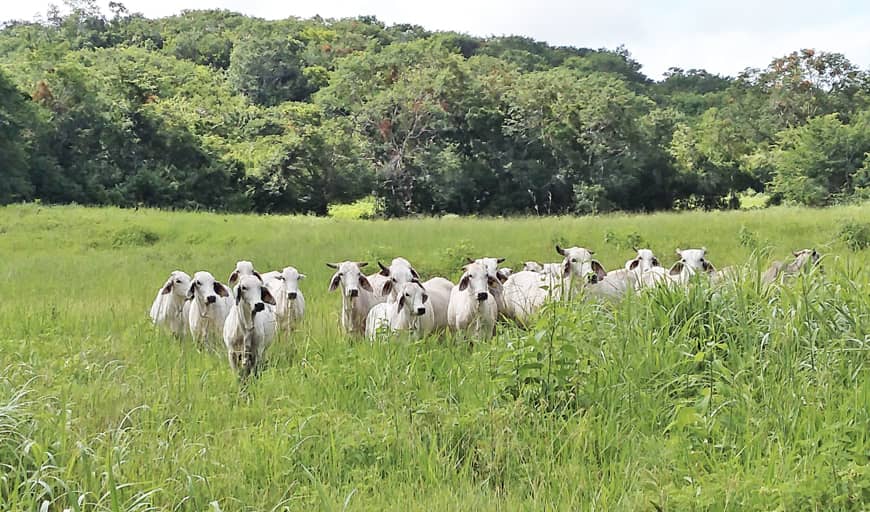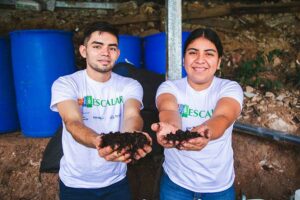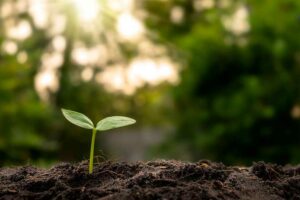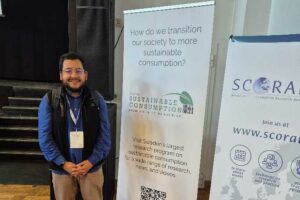Sustainable livestock farming as an option to conserve biodiversity and reduce the impacts of climate change

- The BioPaSOS project webinar will show you with scientific and practical evidence that livestock farming, practiced in a sustainable manner, can contribute to biodiversity conservation and reduce the impacts of climate change.
November 2, 2021. In Mexico, cattle ranching is developed with monoculture pastures and pasturelands that cover almost 110 million hectares, mostly located in deforested, highly degraded sites, with soil erosion and high priority for biodiversity conservation. These areas are located in early warning zones for Mexico's National Biodiversity Strategy (ENBIOMEX, its Spanish acronym). In addition, the country is the second hotspot in the world in terms of species diversity. hotspot del mundo en diversidad de especies.
Traditional and extensive cattle ranching, through the implementation of bad practices, has favored deforestation, the loss of biodiversity and associated ecosystem services, increasing the negative effects of climate change and causing a decrease in the productive indexes of the activity and the well-being of cattle-raising families.
However, the Biodiversity and Sustainable Agro-silvopastoral Livestock Landscapes project, known as BioPaSOS, has set out to demonstrate that sustainable livestock farming can make important contributions to biodiversity conservation, while adapting to climate change, reducing greenhouse gas (GHG) emissions, increasing productivity and thus improving the livelihoods of livestock farming families.
After more than four years of working in this direction, together with local partners and the Ministries of Environment and Agriculture of the Mexican states of Jalisco, Chiapas and Campeche, BioPaSOS will present the impacts of its work and show with scientific and practical evidence that sustainable livestock farming can be a reality in its next virtual seminar, entitled Sustainable Livestock Farming: an Option for Conserving Biodiversity, to be held on November 8, 10 and 12.
It will be a 100% virtual and free event, which will bring together conferences, panels, experiences and, above all, people and institutions that promote sustainable livestock production and biodiversity conservation. The event will have a virtual auditorium that will allow visitors to interact and download materials related to sustainable livestock production, for example, methodological guides for the facilitation of Field Schools, a toolbox of good livestock farming practices, research advances, among others.
Each day of the seminar will cover one thematic axis, from 10 a.m. to 12:45 p.m. (MEX time):
- Monday, November 8. Sustainable livestock farming, what is it and how does it contribute to inclusive green development?
- Wednesday, November 10. Experience of the BioPaSOS project on sustainable livestock farming in its territories of influence: Jalisco, Chiapas and Campeche.
- Friday, November 12. Enabling conditions promoted by the BioPaSOS project.
"This seminar represents a great opportunity to share the results and lessons learned from BioPaSOS learning communities, public-private partnerships and public policy advocacy to promote sustainable livestock systems. However, it will also allow different stakeholders involved in the livestock sector to learn and obtain tools on how to promote biodiversity conservation in livestock landscapes," said Claudia Sepúlveda, coordinator of the BioPaSOS project.
Find all the details about the seminar Sustainable Livestock: an Option to Conserve Biodiversity by clicking here. ¡Register now and participate!

BioPaSOS is implemented by CATIE (Tropical Agricultural Research and Higher Education Center), with the support of the Inter-American Institute for Cooperation on Agriculture (IICA), in coordination with the National Commission for the Knowledge and Use of Biodiversity (CONABIO, its Spanish acronym) and the Ministry of Agriculture and Rural Development (AGRICULTURA), with funding from the International Climate Initiative (IKI) and in coordination with multiple local partners such as local governments, universities, NGOs, livestock associations and private sector institutions, in their territories of intervention.
More information:
Karla Salazar Leiva
Communications Officer
Information Technology and Communication
CATIE
karla.salazar@catie.ac.cr
Juan Edduardo Betanzos-Simon
Local Coordinator BiopaSOS Project, Jalisco
CATIE
juan.betanzos@catie.ac.cr
José Antonio Jiménez-Trujillo
Local Coordinator BioPaSOS Project, Chiapas
CATIE
joseanji@catie.ac.cr
Edwin Pérez Sánchez
Local Coordinator, BioPaSOS Project, Campeche
CATIE
epersa@catie.ac.cr



